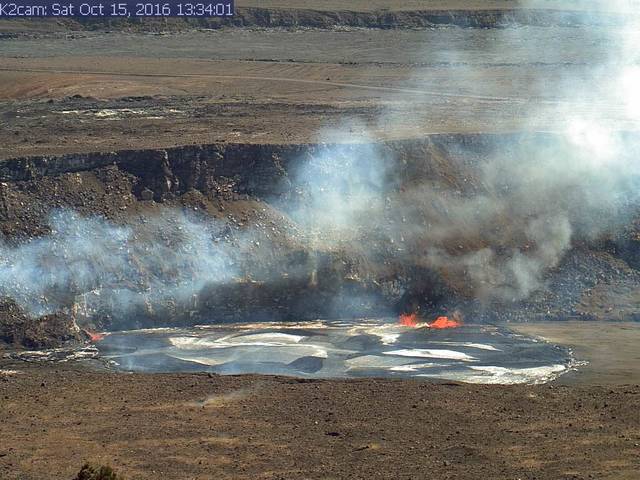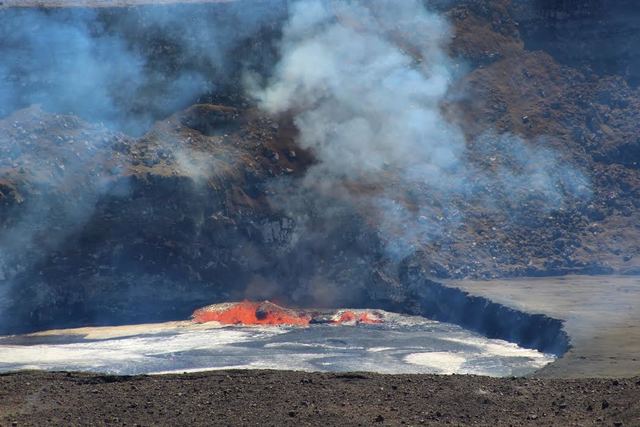The Kilauea volcano lava lake has burped fresh lava onto the floor of the Halemaumau crater for the first time since spring, 2015. ADVERTISING The Kilauea volcano lava lake has burped fresh lava onto the floor of the Halemaumau crater
The Kilauea volcano lava lake has burped fresh lava onto the floor of the Halemaumau crater for the first time since spring, 2015.
And, there might be more on the way.
“I was up there Friday afternoon with my own camera, and people were pretty excited,” said Jessica Ferracane, public affairs specialist with Hawaii Volcanoes National Park.
As of Monday morning, the lava lake hovered between 16 feet and 26 feet below the rim
But, on Saturday, “Lava lake levels rose high enough to create small flow lobes, both east and west, onto Halemaumau’s floor,” the Hawaiian Volcano Observatory said in its daily update.
Hawaiian Volcano Observatory spokeswoman Janet Babb said there was lava flow between 1 and 2 p.m. Saturday on both the east and west sides of the lava lake, and also at about 6:30 p.m. from the west/northwest.
Last week, when the level of the lava lake was 54 feet below the rim, the observatory noted that the last time the level was that high in 2015, an overflow occurred that covered 28 acres of the crater floor.
But it’s unclear if the lava will recede or continue heading toward a spill on a grander scale and, if it spills, how wide an area will be covered with fresh, hot lava.
Saturday’s overflow covered only about 10 square meters, Babb said.
It’s all part of what Babb calls a “pretty good show” over the course of many weeks.
None of the activity, so far, has been of concern for observers.
“The hazard comes if there’s a rockfall into the lake,” Babb said. But, as long as the trade winds are blowing, even that shoudn’t affect visitors.
A large overflow, Ferracane said, will produce “big jets of lava.” Even so, casual observers will find it hard to estimate the height. From a mile away, a 30-feet-tall jet of lava might seem small.
Will the lava lake flow into the crater and release another 28 acres of lava?
That’s hard to say, according to Ferracane.
“It’s always hard to know what Kilauea is going to do next,” she said.




